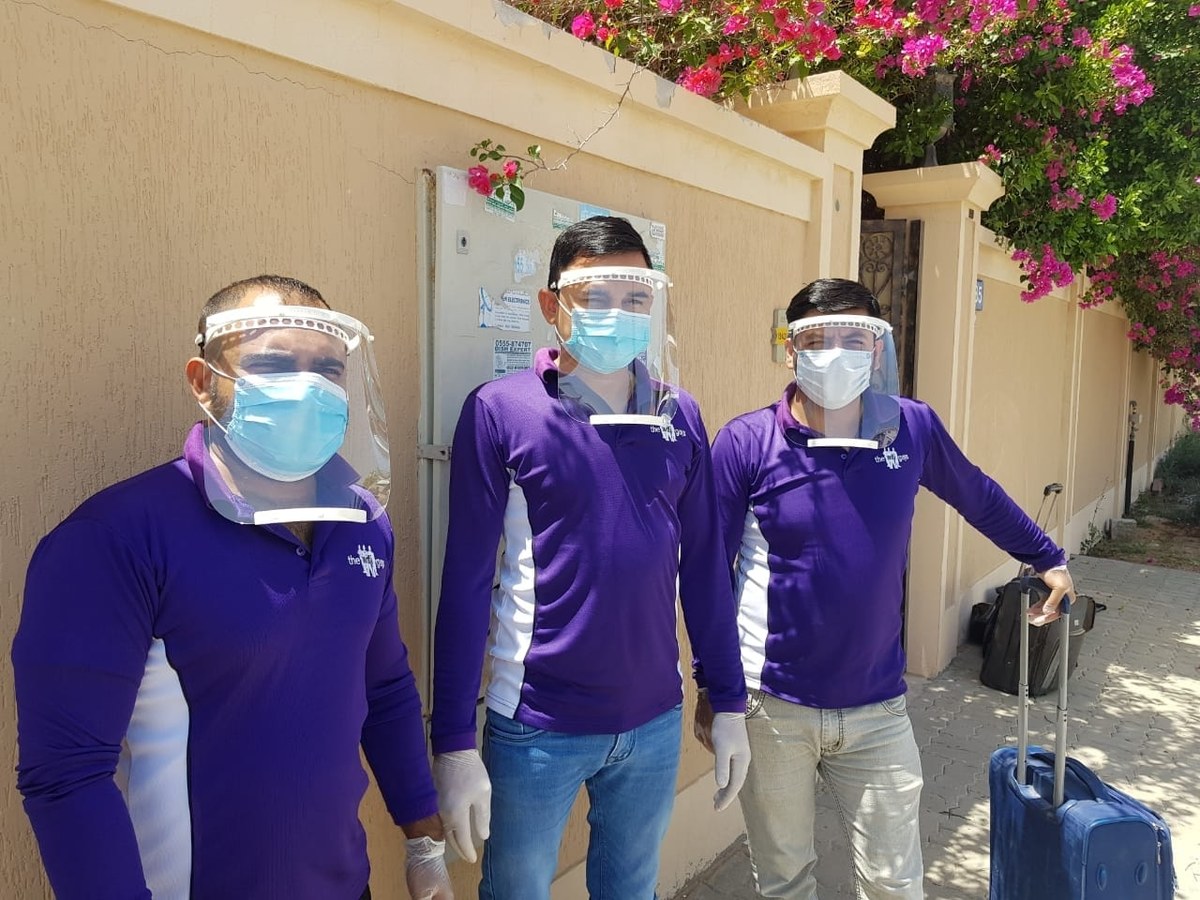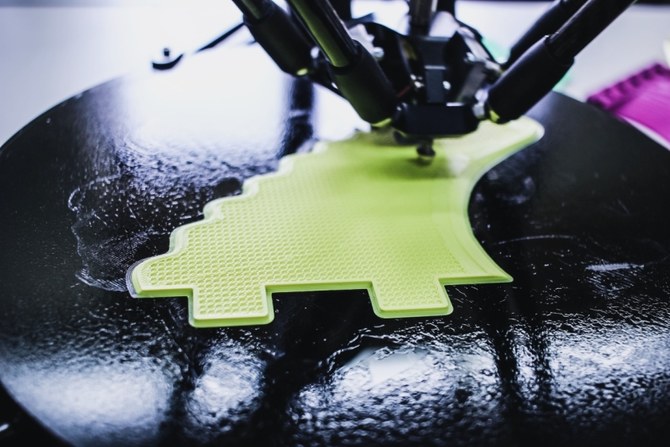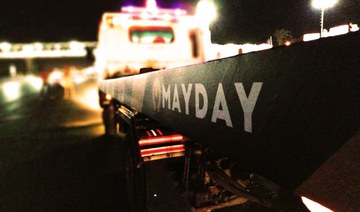DUBAI: Qais Sabri and his colleagues at Jordanian startup Eon Dental have taken only a few years to show how Middle Eastern entrepreneurs can level the playing field and compete internationally.
The additive manufacturer sells its 3D-printed dental aligners to customers in the US, Germany, Singapore and the Middle East, and is now bringing its expertise to the fight against COVID-19 with 3D-printed medical equipment.
“3D printing has disrupted various markets that require a lot of industrial infrastructure and capital costs. It allows for dynamic and hyperlocal manufacturing across many applications, and that principle allowed us to pivot our 3D printing farms to manufacture spare parts for ventilators as well as testing swabs,” Sabri said.
“Our intention was to shore up the transient deficit in manufacturing supplies until larger suppliers catch up, but we’ve also realized there is a real need to control the supply chain locally. COVID-19 has highlighted the importance of having manufacturing capabilities at the regional level.”

Qais Sabri and his colleagues at Jordanian startup Eon Dental have taken only a few years to show how Middle Eastern entrepreneurs can level the playing field and compete internationally. (Supplied)
With global supply chains disrupted by extensive lockdowns and travel curbs, 3D makers everywhere have stepped into the breach to produce personal protective equipment (PPE) for medical workers as well as ventilator parts and face masks for consumer use.
Eon Dental has reconfigured its machines to be able to produce 3,800 ventilator spare parts per day in collaboration with the Royal Medical Services in Jordan. It has also designed and printed COVID-19 test swabs that have been accredited by Singapore’s Ministry of Health and are being tested across the health care community.
Similarly, entrepreneur Ruba Al-Nashash’s 3Dinova started out making gifts. Now the company not only 3D prints face masks but also produces elbow-operated door handles to limit the possibility of contact infections.
Immensa Technology Labs, a Sharjah-based spare-parts supplier to the oil and gas industry, has started offering clear plastic visors made from a special polymer that repels viruses and bacteria while providing 180-degree face protection.

One compant has started offering clear plastic visors made from a special polymer that repels viruses and bacteria while providing 180-degree face protection. (Supplied)
“We were able to produce the shields at competitive prices, with 100 percent of production in the UAE. Therefore, we as a country, do not need to rely on imports for such basic preventive tools,” said CEO and founder Fahmi Al-Shawwa.
Precize Group, a regional general trading company that distributes 3D printers, similarly shifted gear to make PPE. Hundreds of thousands of units were supplied to front-line staff in UAE government organizations, hospitals and pharmacies, said Lothar Hohmann, the firm’s president.
“In our production facilities, we have more than 100 3D printers at our disposal and are working 24/7 to ensure quick turnaround times as customers are always in a hurry,” he added.
While most additive products printed during the coronavirus crisis cater to medical needs, Precise’s latest line capitalizes on a new gap in the market, showing a possible way forward for the sector.
-------
READ MORE: A roadside assistance app cuts through Egypt’s traffic congestion
-------
As the economy opens up and people start socializing again, hygiene will be more important than ever. Precise’s answer is a range of sanitizing covers fashioned from Plactive — an antimicrobial nanocomposite made of polylactic acid and a copper additive. The material eliminates 99.9 percent of fungi, viruses and a wide range of microorganisms, according to developers Copper 3D.
“We have seen an increased demand for this product as the material self-disinfects, keeping it safe and clean when touched. Companies are looking to add protection on frequently touched surfaces such as switches, elevator buttons and door handles,” Hohmann said.
The product has drawn interest from hospitals, restaurants and banks. Precize is now creating face masks injection molded with Plactive, with the first units expected by the end of the month.

Overall, the coronavirus crisis has accelerated the growth of the 3D printing industry. (Supplied)
Overall, the coronavirus crisis has accelerated the growth of the 3D printing industry. Not only has customer exposure to products manufactured through additive printing skyrocketed, but the industry now recognizes how quick paradigm shifts can benefit business operations.
Sabri said the experience of resetting its printers has prompted Eon to invest in equipment with greater flexibility.
“When the next opportunity arises — whether from a virus or anything else — would we be able to respond as quickly? So the message is that the world is changing, and technology is opening doors to new opportunities. But as an entrepreneur, how can you come up with a value proposition that enables you to solve a problem quickly and dynamically?”
------------------
This report is being published by Arab News as a partner of the Middle East Exchange, which was launched by the Mohammed bin Rashid Al Maktoum Global Initiatives to reflect the vision of the UAE prime minister and ruler of Dubai to explore the possibility of changing the status of the Arab region.
































